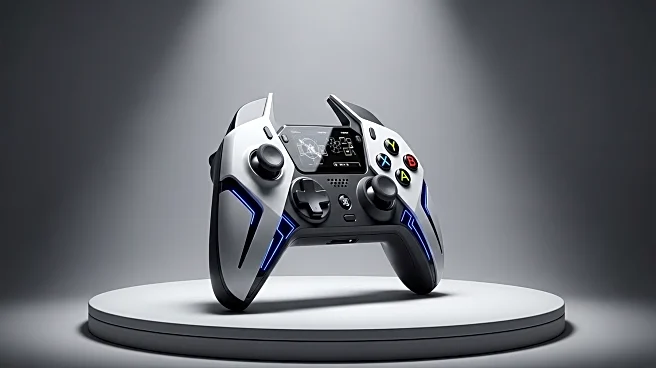What's Happening?
Hazelight Studios' video game Split Fiction has been awarded the Excellent Swedish Design award, marking the first time a video game has received this honor. The award was presented by Prince Carl Philip of Sweden, highlighting the game's impact and success since its release in March 2025. Split Fiction, a two-player co-op sci-fi/fantasy adventure, has sold over 4 million copies. The game follows two young writers, Mio Hudson and Zoe Foster, who are trapped in a simulation of their stories, requiring them to collaborate as their fictional worlds merge. This recognition underscores the game's innovative design and storytelling, which has captivated audiences worldwide.
Why It's Important?
The award signifies a major milestone for the video game industry, particularly in Sweden, where design and innovation are highly valued. By receiving the Excellent Swedish Design award, Split Fiction not only elevates Hazelight Studios' reputation but also sets a precedent for video games as a legitimate form of artistic expression. This could encourage more investment and interest in the gaming sector, potentially leading to more creative and groundbreaking projects. The recognition also highlights the growing influence of video games in cultural and artistic circles, which may lead to broader acceptance and integration into mainstream media.
What's Next?
With the success of Split Fiction, Hazelight Studios is poised to continue its trajectory of innovative game development. A movie adaptation of Split Fiction is already in the works, with John M. Chu potentially directing and Sydney Sweeney attached to star. The involvement of Deadpool writers Paul Wernick and Rhett Reese in the script development further indicates the project's potential. While there is some uncertainty about the film's completion, the momentum suggests that Hazelight Studios will continue to expand its storytelling into new media formats, potentially influencing future game-to-film adaptations.
Beyond the Headlines
The award could have deeper implications for the perception of video games as a form of cultural and artistic expression. It challenges traditional views of video games as mere entertainment, positioning them alongside other recognized art forms. This shift could lead to increased support for video game developers in terms of funding, collaboration, and recognition in artistic communities. Additionally, it may inspire other developers to pursue innovative design and storytelling, contributing to the evolution of the gaming industry.










